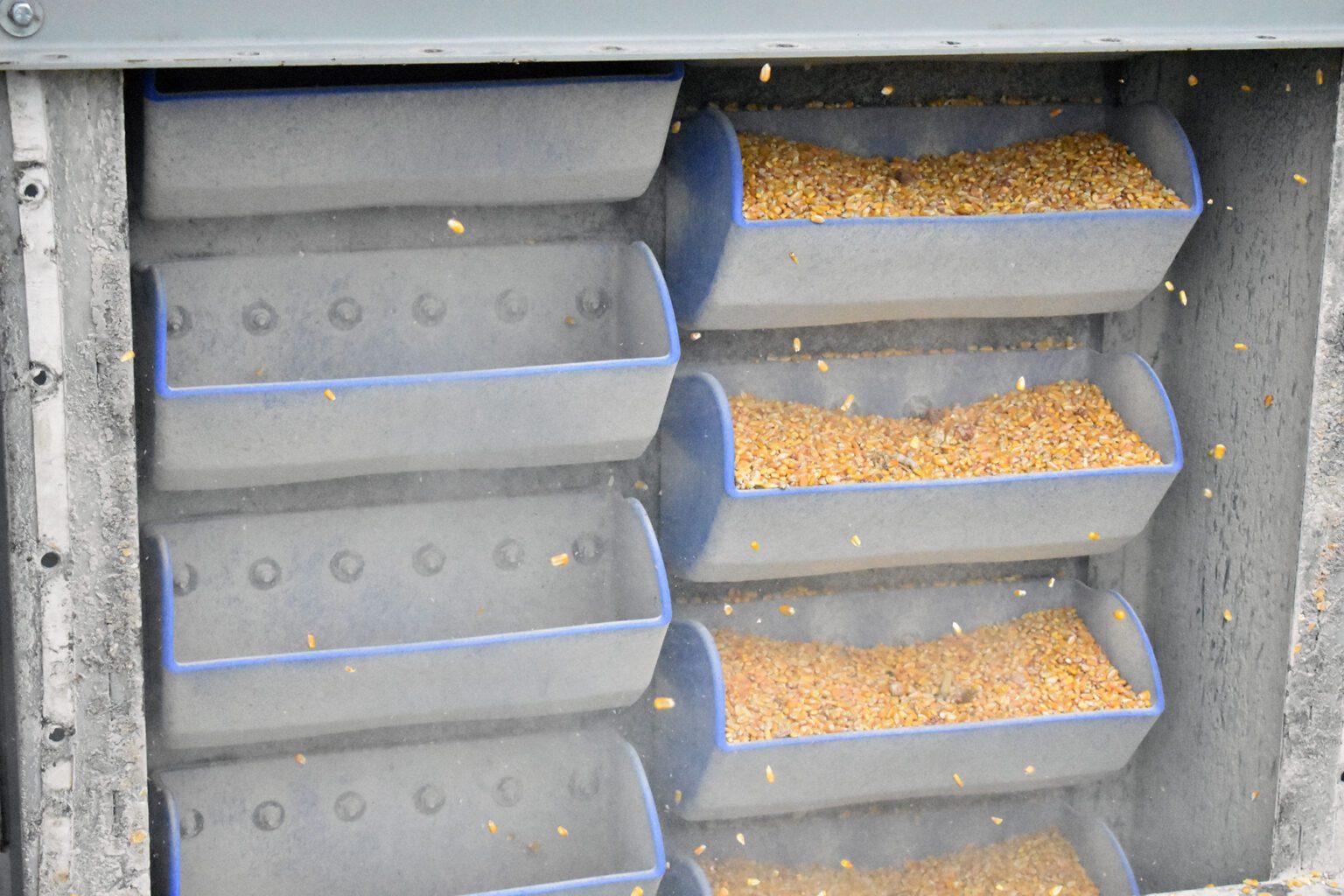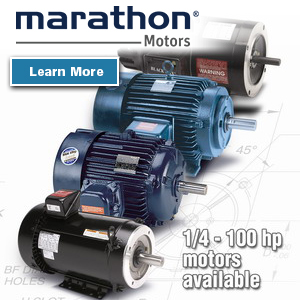Conveyor buckets stand out as an exceptionally versatile choice for all kinds of material handling. However, that wide applicability means there are also important choices to make when selecting your conveyor bucket.
What Is a Conveyor Bucket?
When you think of a bucket, you might think of a pail with a handle, or a five-gallon bucket you’d buy at a home improvement store. A standard conveyor bucket looks and acts more like a scoop– gathering and moving the material it is handling. It is usually wider than it is deep, will often not stand flat on its own, and does not typically have a handle.
This is because conveyor buckets are usually attached to a belt or chain that runs in an endless loop. That endless loop will pick up material from a source, convey it a distance, deposit the material, and then return empty to the source. They are an optimal selection for moving product vertically, or at an incline.
Conveyor buckets are also used in a wide variety of industries. This is why conveyor buckets have a variety of names. Some are familiar with them as “elevator buckets,” used in grain elevators and grain terminals for material handling of grain. They are also commonly used in aggregate industries.

Whether you call them conveyor buckets, industrial buckets, material handling buckets, elevator buckets, or something else entirely, they all provide the same functionality. They are most often made of either plastic or steel.
What Kind of Conveyor Bucket Do You Need?
Is plastic construction better for your application, or steel construction? That depends on your criteria. Key considerations include product compatibility, load capacity and volume, environmental factors, ease of replacement, and customization.
Conveyor buckets are generally made of either plastic or steel. Steel options include mild steel (also known as carbon steel), and stainless steel. Plastic conveyor buckets are typically made from durable materials like polyethylene.
Product Compatibility
With heavy-duty or abrasive applications like mining or construction, metal conveyor buckets may be more suitable because of their exceptional durability and wear-and-tear resistance. They can handle heavy loads, strong impacts, and overall harsh conditions. Stainless steel will be able to withstand more wear and exposure than mild (carbon) steel conveyor buckets.
Plastic construction is suitable for less demanding applications. For example, agricultural facilities and food processing plants may use them to handle grain, seeds, or fine materials such as powders. Plastic conveyor buckets also offer a more seamless construction, making it preferable for industries where hygiene and cleanliness are critical.
Load Capacity and Volume
It is critical to match your load capacity and volume to your conveyor bucket and conveying systems. In addition to ensuring you avoid downtime and lost product, it is also very important for keeping your workers and facility accident-free.
Generally, steel conveyor buckets, whether they are mild (carbon) or stainless steel, will be able to handle more weight, impact, and abrasion. However, this will vary by application, so be sure to refer to your manufacturer’s equipment manual.


Whether you choose a plastic or steel conveyor bucket, carefully evaluate the weight and temperament of your product. Always keep conveyor safety top of mind, and be aware of the limitations of your equipment.
Environmental Factors
Evaluate the environment around your conveyor system. With outdoor and unprotected systems, metal conveyor buckets can be a more desirable option. They are resistant to sunlight and UV damage, and will not crack under harsh temperatures. Stainless steel buckets offer even more durability, with a higher tolerance for moisture and chemicals.
Indoor and protected systems can utilize plastic construction without fear of damage from environmental exposure. For example, a grain elevator is suited for plastic conveyor buckets due to their protected conditions. Plastic conveyor buckets are also not susceptible to rust, and may be a good selection for applications where chemicals or moisture is present.
Ease of Replacement
It’s important to consider how often you will need to replace your conveyor buckets. Frequency of replacement may vary due to normal wear and tear, equipment accessibility, or high-intensity applications that affect overall durability. There is also the cost of replacement to evaluate.
Metal conveyor buckets offer superior durability, and depending on application, may need to be replaced less often than plastic buckets. While they may sometimes have a higher initial cost than plastic construction, this is often recouped over the life of the conveyor bucket. This longer lifespan also means less time and manpower removing and replacing conveyor buckets, which can lead to enhanced conveyor safety in your facility.
Plastic conveyor buckets, on the other hand, are typically less expensive, and are more lightweight. This makes them easier to ship and physically maneuver. This may make plastic an attractive option when more frequent manual handling is required, or in places where equipment is less accessible.
Customization
Metal conveyor buckets are endlessly customizable, offering options for size, shape, and capacity. Additional features can be added, such as reinforced edges, handles, spouts, or special coatings. This high level of customization makes metal conveyor buckets appropriate for a wide variety of common and unusual applications.
Plastic conveyor buckets can be modified as well, though not as extensively due to their method of construction. Both metal and plastic buckets are commonly “punched” for bolt patterns to attach to the conveyor belt or chain. Venting is also a common option that can be added to either type of conveyor bucket.
An Optimal Metal Conveyor Bucket Option
Conveyors, Inc. specializes in fabricated metal conveyor buckets. Along with standard options, Conveyors, Inc. can also customize your conveyor bucket, or conveyor system, to your specifications. These custom designs specifically correlate to your bulk material’s characteristics and the volume required for the application, and can be constructed out of mild (carbon) steel, stainless steel, or other alloys.


How Can IBT Industrial Solutions Help?
Looking for more information about conveying systems? Have questions about your conveyor buckets? IBT can help. Our conveying systems experts can provide tailored solutions for your industrial conveyor buckets, and our Grain Division offers custom punching capabilities for all your bucket elevator needs. Contact us to explore the possibilities, and learn more about Conveyors, Inc.’s capabilities here.





